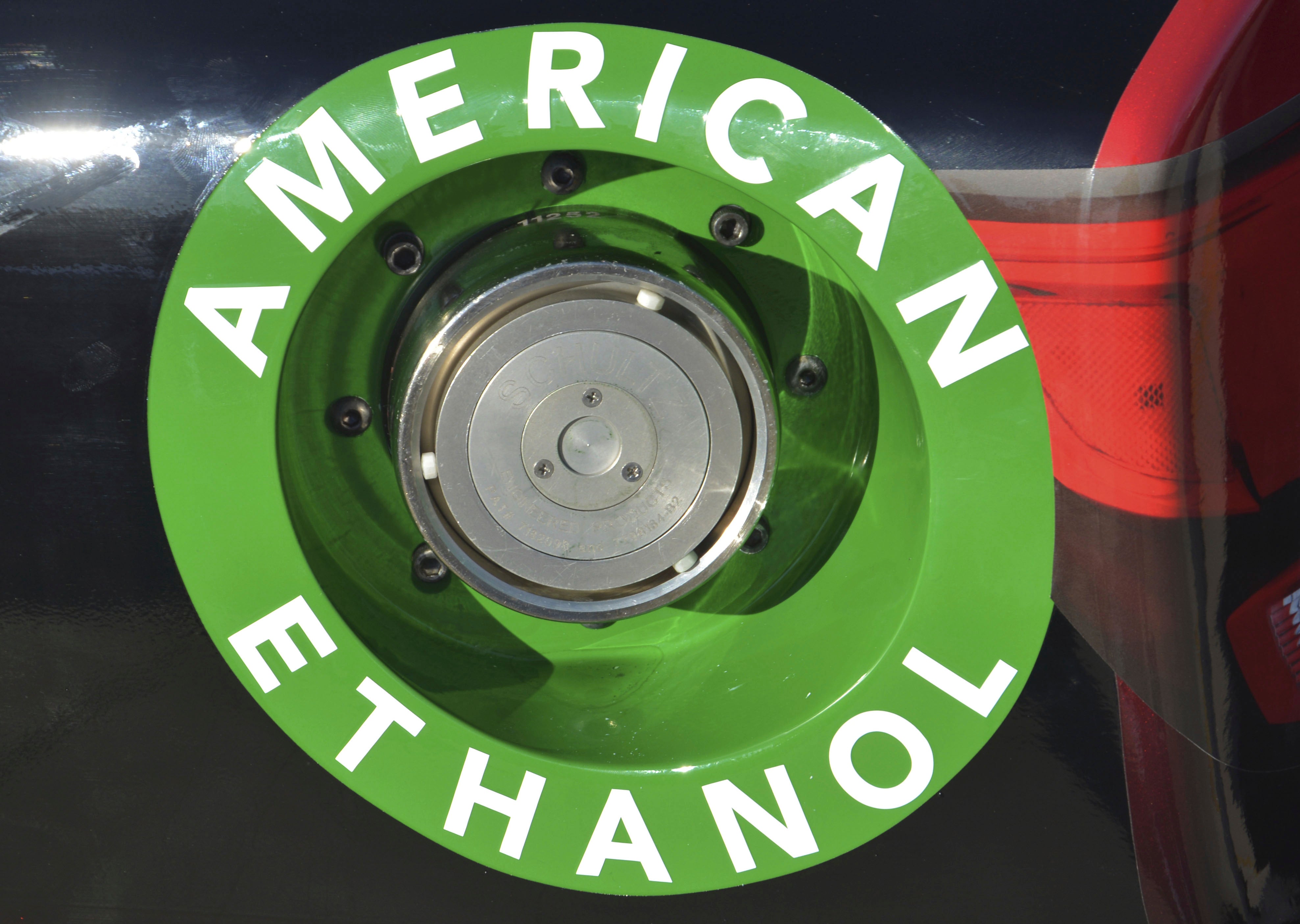Midwest could add more ethanol to gasoline under EPA plan
Gasoline with higher blends of ethanol could be sold year-round in eight Midwestern states beginning in 2024 under a rule proposed by the Environmental Protection Agency

Gasoline with higher blends of ethanol could be sold year-round in eight Midwestern states beginning in 2024 under a rule proposed Wednesday by the Environmental Protection Agency.
The proposed rule is a victory for the biofuels industry, which for years has pushed to allow sales of gasoline blended with 15% ethanol during the summer, which hasn't been allowed because of concerns that it would worsen smog during hot weather. The industry and members of Congress welcomed the EPA's proposal, which had been requested by governors in the eight states, but they questioned why the new rules couldn't begin this summer.
Under the proposal, the higher blends could be sold during the summer in Iowa, Illinois, Minnesota, Missouri, Nebraska, Ohio, South Dakota and Wisconsin. Most gasoline sold in the U.S. is now blended with 10% ethanol, which is allowed throughout the year.
The issue is especially important in those Midwest states because farmers there grow the bulk of the nation's corn, and nearly 40% of that crop is used to produce ethanol. As more ethanol goes into gas tanks, demand for corn should increase and prices for the commodity paid to farmers should also rise.
The American Coalition for Ethanol said in a statement that the group appreciated the EPA's proposal but argued there was no reason to wait until 2024 . The group accused the agency of delaying the action because of pressure from the petroleum industry.
“The administration appears to be caving to refiner crocodile tears by kicking the can to 2024 instead," the coalition said. "This delay means consumers in conventional gasoline areas of the country will be forced to pay more at the pump this year and retailers who want to offer lower cost E15 to their customers will be penalized.”
The group urged the EPA to allow the change to take effect in 2023 for the eight Midwestern states and for the Biden administration to allow the expanded ethanol sales in other regions of the country.
The American Fuel & Petrochemical Manufacturers industry group said the EPA was right to delay new rules until 2024 because summer gasoline production is already underway. Even with more lead time, the organization predicted that creating a special blend for the Midwestern states would increase costs and could lead to tighter fuel supplies in the region because not all refiners, pipelines and terminals are ready to handle the different blend.
“Fuel manufacturers and regional pipeline and terminal operators have made clear to the Biden administration and the eight petitioning states that the push to outlaw the current blend of summertime gasoline and replace it with a boutique blend is going to impose major costs on the Midwest’s fuel supply chain and consumers — ranging from $500-$800 million per year, and potentially higher if unforeseen interruptions occur,” the organization said in a statement.
The EPA said it would hold a hearing on the proposed rule in late March or early April. The agency didn't immediately respond to a request to comment about questions regarding its proposed rule.
Bookmark popover
Removed from bookmarks